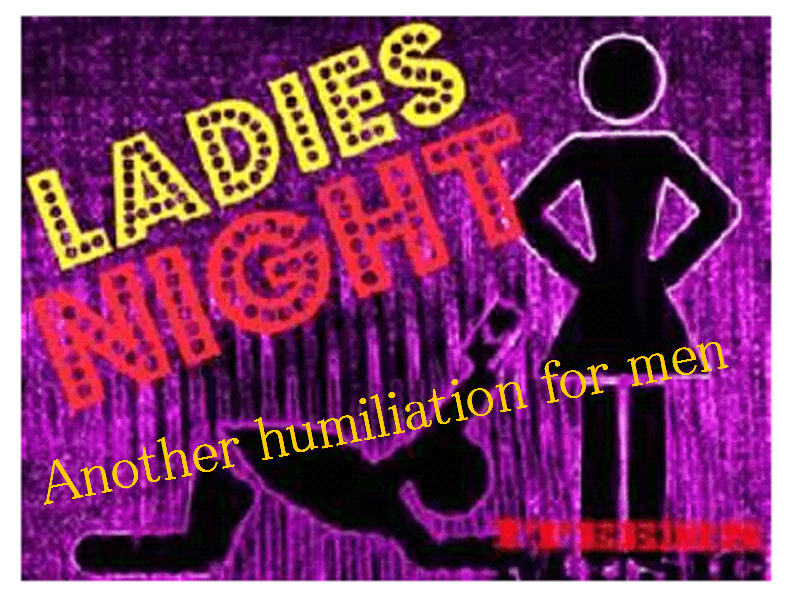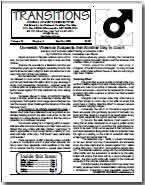By NCFM Secretary Al Rava, Esq.
NCFM president Harry Crouch is following on the footsteps of NCFM vice-president Marc Angelucci who, in 2007, prevailed in the landmark California Supreme Court “Ladies’ Night” sex discrimination case of Marc Angelucci v. Century Supper Club (2007) 41 Cal.4th 160. Angelucci ruled that men who were charged more than women to enter a supper club did not have to ask the offending business for equal treatment in order to have standing to file a sex discrimination lawsuit. NCFM’s amicus brief to the California Supreme Court was instrumental in the Angelucci decision.
The latest NCFM-related lawsuit to champion equal rights for men and women and to eradicate archaic and illegal Ladies’ Night promotions, was filed by NCFM president Harry Crouch on New Year’s Eve. Harry filed a class action lawsuit in Los Angeles County Superior Court on behalf of himself and all similarly situated men and women against the Four Seasons Hotel Westlake Village (California) for its weekly Girls’ Night Out promotion that treated male and female patrons unequally.
On Girls’ Night Out, held every Wednesday for over a year in the Four Seasons lounge, Four Seasons provided female patrons with free food (appetizers) and 1/2 priced beverages, while denying the free food and discounted beverages to male patrons. Four Seasons provided the free food and discounted beverages to only female patrons based solely on sex, it did not matter how wealthy, how well-fed, or well-hydrated Four Seasons female patrons were in comparison to its male patrons to qualify for the free food and discounted beverages.
As set forth in the class action complaint, [http://ncfm.org/wp-content/uploads/2013/01/12-27-12-Harry-Crouch-Class-Action-Complaint_opt.pdf]:
Despite the many State of California anti-discrimination statutes, unanimous California Supreme Court opinions, California Attorney General and Department of Fair Employment and Housing actions, and California Department of Alcoholic Beverage Control (“ABC”) regulations that prohibit California businesses from treating patrons unequally based on their sex, and specifically condemn and outlaw Ladies’ Night and Ladies’ Day promotions that treat female and male patrons unequally, defendants brazenly advertised and employed a recurring Girls’ Night Out promotion for over a year that treated female and male unequally based solely on their sex.
Mr. Crouch’s class action includes female patrons as part of the class because, as set forth in the below excerpts from the complaint, Ladies’ Night promotions harm women as well as men:
“Koire also ruled “the Legislature established that arbitrary sex discrimination by business is per se injurious” and “differential pricing based on sex may be generally detrimental to both men and women, because it reinforces harmful stereotypes.” Id. at 33. Among the harmful stereotypes detrimental to the advancement of equal rights for women and men that defendants’ Girls’ Night Out perpetuated include: (1) all women are genetically incapable of earning as much money as men; (2) all women are genetically predisposed to not being able to pay as much as men for the same thing; (3) all women enjoy being subsidized by strange men at hotel bars and restaurants; (4) all adult women enjoy being treated like little girls by not being required to pay the full price that adult men are required to pay for the same goods or services, (5) all women enjoy drinking discounted beverages and eating free food in front of men who paid full price for the same types of drinks or food; (6) all women welcome and enjoy a hotel treating them as little more than sexual bait for the hotel’s male customers; and (7) all women and men are expected to just stand around and take it like sheared sheep when a business charges one sex more than the other sex for the exact same thing.
Defendants’ archaic Girls’ Night Out promotion, apparently implemented to benefit the “little women,” is the hallmark of traditionalistic thinkers who may advise a young woman her best chance for a happy life is to ace her home economics class and learn how to make queso from Velveeta in order to catch a good man. Not only has the California Supreme Court expressed its disapproval of the treatment of women through Ladies’ Night promotions, but the United States Supreme Court has similarly weighed in about “romantic paternalism” directed at women. In Frontiero v. Richardson, 411 U.S. 677, 684 (1973), wherein the U.S. Supreme Court ruled the U.S. military must provide its female members with the same housing and medical benefits as it provides its male members, Justice William J. Brennan Jr. wrote that this is another example of one of those types of traditional sex discrimination that ostensibly appears to benefit women, but “rationalized by an attitude of ‘romantic paternalism’ which, in practical effect, put women, not on a pedestal, but in a cage.”
Defendants’ Girls’ Night Out promotion caused discontent, animosity, harm, resentment, or envy among the sexes, and is especially troubling, arbitrary, and invidious at a time when the depressed economy put a higher proportion of men out of work than women. For example, when Harry Crouch attended the Girls’ Night Out in March of 2010, the national unemployment rate for men was higher than it was for women, standing at 10% for men and only 8% for women.
During Girls’ Night Out, Four Seasons would have provided female millionaires such as Nancy Pelosi or Sarah Palin with discounted drinks and free food, but would have denied the same to combat veterans from the Iraq and Afghanistan wars. Or, multi-millionaire Oprah Winfrey could have traveled from her Montecito, California mansion and have been given deeply discounted drinks and free food on Girls Night Out, while unemployed male construction workers would have had to pay full price for their beverages and be denied the free food. On Girls’ Night Out, a female defense attorney pulling down a six figure annual salary would have received discounted drinks and free food, but a minimum wage male file clerk, working for the same firm and sitting at the same Four Seasons table, would have had to pay full price for the same types of beverages and food.
NCFM member Steve Frye had earlier filed a individual lawsuit in Los Angeles County Superior Court, against this same Four Seasons Hotel for its Girls’ Night Out promotion, also alleging sex discrimination for treating male and female patrons unequally. That case is pending.
Sex Discrimination works both ways.
Sex Discrimination is just as harmful to men if not more so than it is to women.
http://ncfm.org/wp-content/uploads/2013/01/12-27-12-Harry-Crouch-Class-Action-Complaint_opt.pdf




